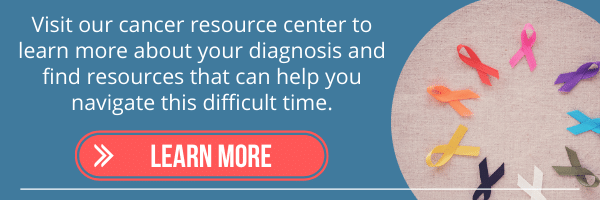The Ultimate Guide to Getting a Second Opinion
.png)
.png?width=500&name=_Blog%20Graphics%20(14).png)
When you're confronted with a complex or critical health care diagnosis, you may be scared or confused by the prognosis or treatment recommended. This is often the time patients seek another opinion. Generations ago, patients relied on their personal physicians to make all their healthcare-related decisions. But no single physician is infallible, and most decisions are better when scrutinized by another informed source.
As a patient, when and how do you go about getting a second opinion?
Some patients are apprehensive to seek a second opinion. They feel might be second-guessing their physician, however, the decision to seek another opinion is almost always the appropriate path. In fact, a study by the Mayo Clinic found that 88% of cases presented to their physicians involved diagnoses that were either incomplete or incorrect. This statistic alone is a good reason to seek some additional perspective.
Here are some helpful steps to take in getting a second opinion:
1. Gather all the information you have from your first opinion
With today's electronic health record systems, much of the data that is required should be available to you in electronic, or if not analog (paper) copies. Your medical images (x-rays, CT scans, ultrasounds, etc.) and history (pathology reports, lab and bloodwork results, etc.) should be available electronically or at least on CDs or DVDs. Gather whatever information about your condition that you can so that you have it available once you find that expert for your second opinion. That should include at least pathology reports, test results and scans, as well as the text of the original physician's opinion.
2. Check with your insurance company (payer) about coverage
Today, many payers cover all or part of the cost of a second opinion. Some actually require second opinions prior to your embarking upon some exotic or expensive treatment plan. Insurance companies are quite familiar with the Mayo Clinic study and would much prefer (even if just for their own wallets) that the treatment plan prescribed and followed has the greatest chance of success. Medicare Part B pays 80% of the cost of obtaining a second opinion. If your second opinion differs from the first, Medicare will pay a similar percentage of a third opinion.
Seeking a second opinion for a cholangiocarcinoma diagnosis? Check out the Mike Shane Memorial Fund.
3. Find an expert in the specific issues you're experiencing
While many people seek someone locally, there are plenty of experts who provide remote medical opinions. When you're confronted with a life or death issue, ideally you'll find the best and most experienced physician in that field no matter where they're located.
- Ask your original physician for a recommendation
- Reach out to friends and/or your network
- Seek counsel from non-profit organizations that may deal with your particular illness. They will often connect you with their members who may have recommendations for you or physicians with whom they're familiar in the field.
When beginning your search for a second opinion physician, you can start by asking your original physician for a recommendation. Experts often know other experts in their field. If you're afraid to ask them directly, then ask your friends or reach out to your network. Or, go online and research the specialty you're looking for. Seek counsel from non-profit organizations that may deal with your particular illness. They will often connect you with their members who have dealt with or are dealing with similar circumstances, as well as with physicians with whom they are familiar in the field.
4. Share your medical records with the second opinion physician
As mentioned above, travel is not always feasible. You may be uncomfortable with the idea of boarding a plane right now or simply want to explore a second opinion without investing in travel/accommodations. In this case, a remote second opinion is the best solution. Even if you are planning to see the physician in person, you could save yourself a lot of headaches by collecting and organizing your records digitally and sending them in advance.
With multiple files of all types, you may feel overwhelmed at the prospect of how to share them seamlessly. We launched a DICOM study uploader in 2020 to help patients send single DICOM images to their doctors, but often with complex medical diagnoses, various other file formats are required to get the full picture. Recognizing this, we developed Purview Capture and we're offering it free of use. Collect and store all of your medical records with this platform and share with anyone with a simple share request function.
5. Ask the expert the direct questions that you need answers to
Don't be shy about speaking up if you don't understand something. Doctors and healthcare professionals often speak in their own languages that patients don't always understand. If you don't understand something, simply ask. You might also ask for alternatives that might be available. You can also inquire about what other patients who faced a similar circumstance chose to do. Ask, ask, ask. The patient's involvement in their own healthcare can sometimes be just the tonic that gets a physician to think about how they can better present information to their patients.
6. Share the second opinion with your original physician
If your original physician is somehow offended by your seeking a second opinion, you have the wrong physician. Otherwise, they may have their own opinion on what the second opinion physician provided which may spur deeper conversation or even new ideas. More heads are better than just one.
Don't hesitate to get involved yourself. The best patients are informed ones. Asking the right questions and finding someone who can explain your choices in the simplest language can ensure you select the treatment plan that is most comfortable for you. Ultimately, it's never a bad idea to seek an additional expert opinion on your diagnosis.
Editors note: A version of this blog was originally published on July 19, 2019 and updated for clarity and with additional information.





